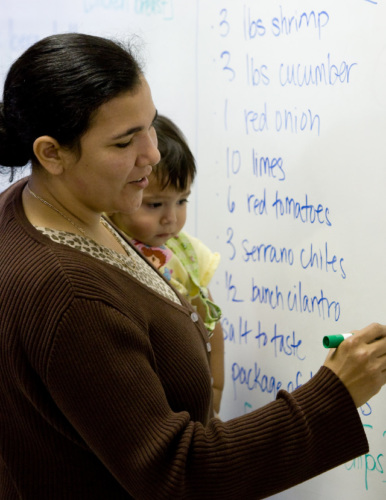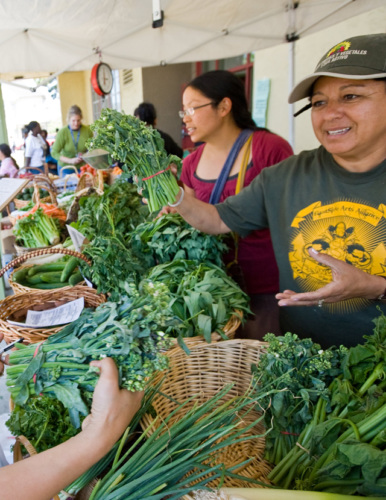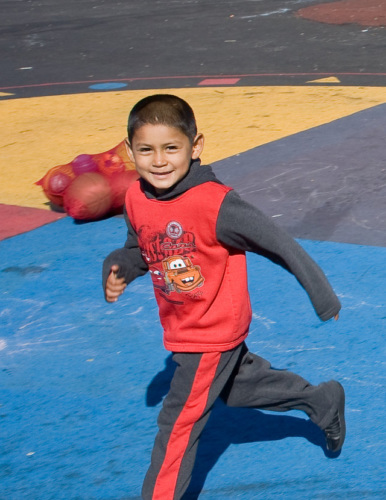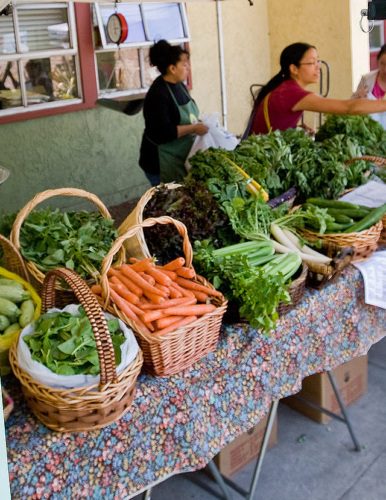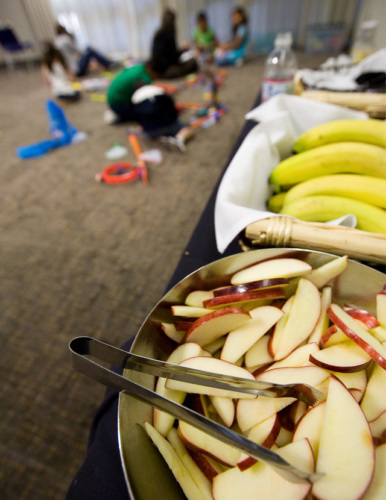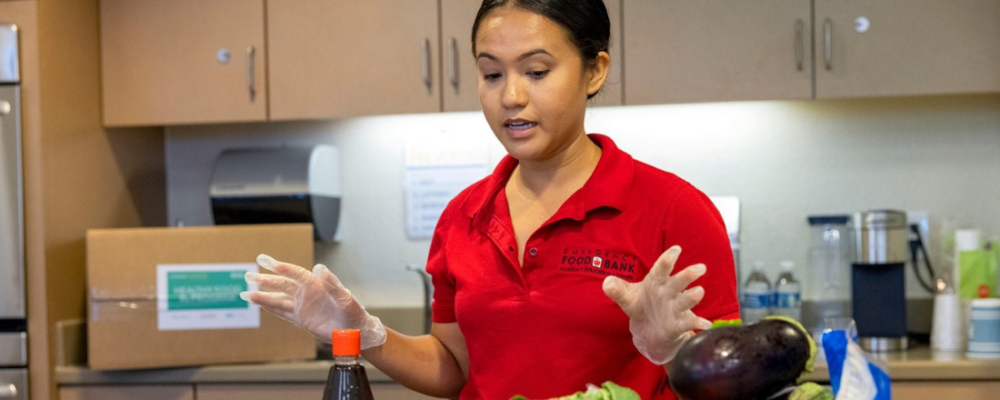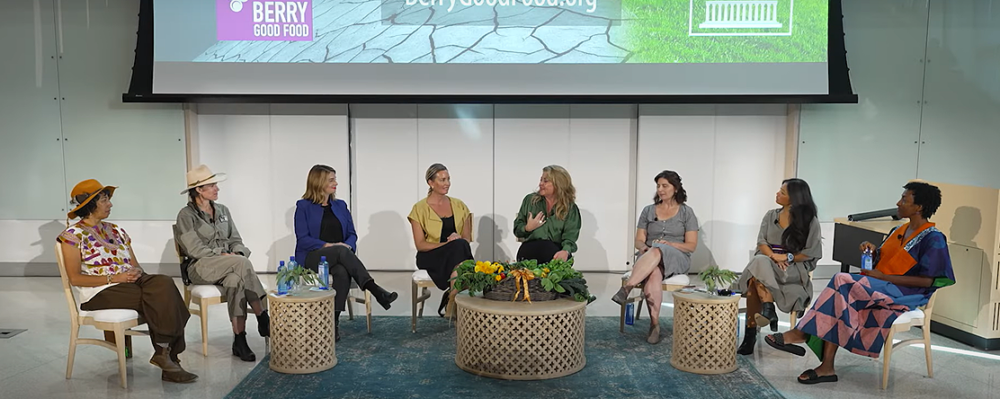
Center for Wellness and Nutrition
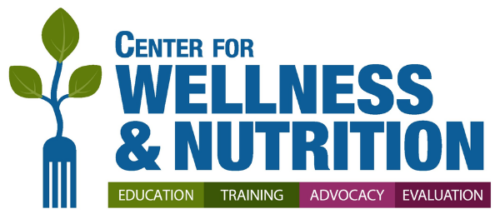
The Public Health Institute Center for Wellness and Nutrition (CWN) recognizes the connections among local community environments, poor diet, physical inactivity, food insecurity and obesity.
CWN has a diverse portfolio of nutrition, physical activity, obesity prevention and chronic disease prevention projects that reduce the risk of obesity by empowering communities to eat healthier foods, engage in physical activity and create safer environments that foster healthy choices. We have partnered with the California Department of Public Health for over 15 years to implement its highly successful, USDA-funded Supplemental Nutrition Assistance Program nutrition education (SNAP-Education).
Our multi-disciplinary PHI team provides specialized expertise in social marketing, cultural competency, communications, tailored materials, partnership development, training, technical assistance, research and evaluation, with a focus on the unique needs of the low-income audience. Our team can oversee full projects from development to implementation, or provide training and consultation to help guide your efforts and build the capacity of your staff.
Our Impact
See all Center for Wellness and Nutrition Impacts

- $22M worth of food cash cards distributed in under two months
- 200K boxes of food delivered to homes
- 1.1M people in the Southeast were reached through innovations in SNAP-Ed program
Projects
Active Projects
- Worksite Wellness
-
The Center for Wellness and Nutrition is funded by Western Growers Assurance Trust to enhance the competitiveness and profitability of members and to lead members, worksite employees and the fresh produce industry toward a healthy, sustainable and profitable future by implementing evidence-based worksite wellness programs.
- Michigan Harvest of the Month (MiHOTM) Point-of-Access Evaluation
-
The Michigan Fitness Foundation collaborates with diverse community partners to implement the MiHOTM program in grocery stores, farmers’ markets, community gardens, and food pantries reaching low-income populations in Michigan with nutrition education and resources. Quasi-experimental designs assess the impact of the MiHOTM point-of-access pilot programs in retail and food pantry settings. Evaluation measures include shopper survey, in-store scan, showcase observation, store manager/director survey, food panty participant intention card/survey, and food pantry staff and nutrition educator interviews.
- Bay Area Nutrition Education and Obesity Prevention Training and Resource Center
-
The Center partners with the Santa Clara Public Health Department to operate the San Francisco Bay Area Nutrition Education and Obesity Prevention Training and Resource Center (TRC), which supports Bay Area health departments. The TRC tailors assistance to needs for programs and initiatives, community engagement, policy, systems and environmental change, and media and communications.
- Growing Healthy Farms, Healthy People: Our Shared Future Western Growers Assurance Trust Wellness Initiative Demonstration Project
-
The Center for Wellness and Nutrition is funded by Western Growers Assurance Trust to enhance the competitiveness and profitability of members and to lead members, worksite employees and the fresh produce industry toward a healthy, sustainable and profitable future by implementing evidence-based worksite wellness programs. Activities will occur on an ongoing basis over 18 months, guided in each site by an employee wellness committee.
- Central Valley Nutrition Education and Obesity Prevention Training and Resource Center
-
The Center partners with PHI's Central California Regional Obesity Prevention Program to operate the Central Valley Nutrition Education and Obesity Prevention Training and Resource Center (TRC). The TRC supports Central Valley health departments. TRC public health experts, trainers and professional advisors tailor assistance to needs for programs and initiatives, community engagement, policy, systems and environmental change, and media and communications.
- School Health and Wellness Consortium: Fresno & Madera Counties
-
PHI CWN will create a School Health and Wellness Consortium engaging school district leadership in Fresno and Madera counties. Districts will meet on a regular basis to increase their knowledge of the Whole School, Whole Child, Whole Community framework to strengthen their Local School Wellness Policies. In this process, participating districts monitor their performance, share practices and develop accountability for comprehensive and ongoing implementation of their wellness policies.
- Supplemental Nutrition Assistance Program Education
-
Over 15 years, the Center has partnered with the California Dept. of Public Health's Nutrition Education and Obesity Prevention Branch to provide management, program support, evaluation and implementation of the nation's largest, most diverse nutrition and physical activity initiative. It has helped create partnerships empowering low-income Californians to increase fruit and vegetable consumption, physicial activity and food security.
- Power Play! Campaign (Power Play!) Evaluation
-
Power Play! is a multi-channel, community-based social marketing initiative of the California Department of Public Health that engages low-income children (9-11 years old) and their families to eat more fruits and vegetables and be physically active every day. Two impact evaluation studies, both using randomized control trials, capture the effects of Power Play! in participating children. Pre and post-intervention measures include campaign exposure and recall, change in fruit and vegetable consumption, physical activity behavior, and related psychosocial constructs among children; as well as school environment assessments and teacher surveys. Qualitative methods are also an integral part of the Campaign material and promotion development; message, concept, and logo testing; pilot testing; student photovoice projects; examining strategies for parent engagement; and incorporating community voice into the evaluation findings.
- California Harvest of the Month (HOTM) Evaluation
-
HOTM is an initiative of the California Department of Public Health that features nutrition education tools and resources to support healthy lifestyle habits like eating fruits and vegetables and being physically active every day. Formative evaluation to support the development and refinement of HOTM include literature reviews, secondary data reviews, key informant interviews with key stakeholder groups, and a statewide survey of classroom nutrition education practices among teachers.
- Fresh Fruit and Vegetable Program (FFVP) and Michigan Harvest of the Month (MiHOTM) Evaluation
-
The Michigan Fitness Foundation collaborates with the Michigan Department of Education to implement the MiHOTM program in FFVP schools, coordinating nutrition education and cafeteria promotions with fresh fruit and vegetable snacks. The study design is quasi-experimental using an intervention and control group with a convenience sample of schools to examine the impact of the MiHOTM and FFVP snack. Pre and post-intervention measures include MiHOTM exposure, change in fruit and vegetable consumption, physical activity behavior, and related psychosocial constructs among children; as well as school environment assessment, teacher and FFVP administrator survey, parent survey, and FFVP snack orders. Formative evaluation to support the development and refinement of MiHOTM include literature reviews, and key informant interviews with key stakeholder groups.
- Southeast Learning Community
-
The Center has formed a partnership with the National Network of Public Health Institutes (NNPHI) in the Southeast Region of the United States to support agencies implementing the Supplemental Nutrition Assistance Program – Education (SNAP-Ed). The states included in this project include: Florida, Georgia, Alabama, Mississippi, North Carolina, South Carolina, Tennessee, and Kentucky. Funding for this project has been provided by the Centers for Disease Control and Prevention (CDC). The Center will work with the Southeast Region to look beyond SNAP-Ed direct education and incorporate policy, systems, and environmental (PSE) strategies as a support mechanism to SNAP-Ed Implementing Agencies as well include evaluation measures and develop partnership opportunities with NNPHI members.
- Reducing Lead Exposures in LMICs
-
Lead poisoning is an under-recognized global health concern that remains unaddressed in most low- and middle-income countries. Lead exposure, risks and impacts can be reduced through cost effective education, improved work practices and population-based interventions. Our project will reduce lead exposure and support behavior change in recycling industries and neighboring communities through raising awareness, workplace programs and policy recommendations and enforcement support.
Completed Projects
- Cooking Matters Evaluation
-
PHI's Center for Wellness and Nutrition (CWN) is working in consultation and collaboration with the Cooking Matters Colorado PSE team to create an evaluation strategy to assess the real benefits of PSE interventions for consumers and retailers in the shop setting. The evaluation will focus on changes in food security and sales related to PSE interventions.
- Toiyabe Indian Health Service PICH and REACH CDC Division of Community Health grants
-
Each of these grants, which both run from FFY 2015 through FFY 2017, funds a variety of community wellness projects. PHI is funded as the evaluation contractor for both grants. Each of the grants requires two types of evaluation: one actual use evaluation and one or more outcome evaluations. The projects selected for evaluation include development of walking/biking paths in three tribal areas, planting a school garden with concurrent implementation of a school garden curriculum in five schools in grades K-2, and market match for fruit and vegetables to increase access in three farmers’ markets.
- California Children’s Healthy Eating and Exercise Practices Survey (CalCHEEPS), 1999-2013
-
CalCHEEPS is a statewide surveillance project of the California Department of Public Health that collects diet and exercise data from 6- to 11-year-old children in California. It is conducted biennially and uses a telephone-based 24-hour dietary recall to monitor dietary, physical activity, and overweight trends among children from households receiving CalFresh to evaluate their progress toward meeting health recommendations outlined in the Dietary Guidelines for Americans and the Healthy People 2020 Objectives. Data are weighted and analyzed by demographic, behavioral, and environmental factors to help inform California’s nutrition educations programs and campaigns targeting children. In 2007, a calibration study using food diary and 24-hour dietary recall compares group means in dietary intake by data collection method.
- SNAP-Ed Southeast Learning Community
-
PHI will collaborate with the National Network of Public Health Institutes, including its members in the Southeast Region, the USDA Southeastern Regional Staff and Office to establish a learning community with SNAP-Ed agencies from Southeast states, and to identify successes and challenge and provide technical assistance related to evidence and practice-based resources and approaches.
- NEOP Investments in LA County: Strategic Designs for the Youth Engagement Model
-
The Center for Nutrition and Wellness will contract with County of Los Angeles to identify methods to engage youth in nutrition education. Deliverables include data and results of focus group findings, a summary report with thematic findings and technical assistance after the report is delivered.
- Michigan Nutrition Network Evaluation Phase IV
-
PHI is proposing evaluation activities to support the request from the MFF to move the MiHOTM and FFVP intervention from a pilot project to a practice-based program. This includes summarizing the evidence for HOTM, developing tools to support classroom teachers, working with key informants to develop the best training and implementation models, identifying best practices for implementing MiHOTM at FFVP school sites in Michigan, and developing an impact evaluation plan for FFY 16.
- Classroom Mastery: Adult Learning and Facilitation Skills Training
-
The Center on Wellness and Nutrition will conduct a training to adult educators on the topic of “Classroom Mastery: Adult Learning and Facilitation Skills Training.” It will be conducted with people who focus on adult education in order to enhance and practice skills related to designing, preparing and delivering adult education programs related to nutrition education and obesity prevention.
- Youth-led Participatory Action Research (YPAR)
-
PHI’s Center for Wellness & Nutrition will provide a one day training to YMCA staff on Youth-led Participatory Action Research and the use of SNAP-Ed evidence-informed tools and resources to assist in supporting youth efforts to improve the food and physical activity environments in their community.
- Rethink Your Drink Webinar and Training
-
PHI’s Center for Wellness and Nutrition will facilitate an interactive training focused on Rethink Your Drink for Oregon State University.
- Champion Providers
-
The Center for Wellness & Nutrition will provide support, training, communications and technical assistance to UCSF’s Champion Providers project. The project harnesses the influence, power, and respect of health care providers to build healthier communities.
- Placer County SNAP-Ed Get Fresh Project
-
The Center of Wellness and Nutrition will demonstrate how it coordinates efforts to implement community nutrition interventions and educate CalFresh and SNAP-Ed eligible participants on making healthier choices within their limited budget. In addition, they will develop successful and long-lasting partnerships between agencies and nutrition education providers to promote the 2010 Dietary Guidelines for Americans to increase fruit and vegetable consumption and increase physical activity among the CalFresh and SNAP-Ed eligible population. As well as, demonstrate how PHI will indentify unmet needs of the target audience through targeting methodologies, resources, and partners within local jurisdictions, and implement nutrition education and obesity prevention interventions to that target audience.
- UC Cal Fresh Youth Engagement Project
-
Center for Wellness and Nutrition will support the health of youth by supporting the University of California CalFresh sites with provision of culturally and age appropriate services. The Center will help develop strategies that will align, envision and empower youth and their adult counterparts to be future thought leaders in nutrition, physical activity, and building healthier communities.
- The Western Region Nutrition Education and Obesity Prevention Center of Excellence at Colorado State
-
This project builds on the expertise PHI Center for Wellness and Nutrition (CWN) staff in research and evaluation of Supplemental Nutrition Assistance Program-Education (SNAP-Ed) intervention strategies. CWN will evaluate Youth-led Participatory Action Research (Y-PAR), an intervention for Colorado State University’s Region Nutrition Education and Obesity Prevention Center of Excellence award.
- Toiyabe Indian Health Project Partnerships in Community Health Evaluation Plan
-
PHI will support Toiyabe Indian Health Project, Inc. with evaluation of their Partnerships in Community Health award from CDC. PHI will analyze baseline data of their Actual Use Evaluation of Walking Paths, initiate follow-up data collection, and initiate baseline data collection on the Outcome Evaluation Community Survey.
- Toiyabe Indian Health Project Racial and Ethnic Approaches to Community Health and Evaluation Plan
-
PHI will support Toiyabe Indian Health Project, Inc. with evaluation of their Racial and Ethnic Approaches to Community Health Plan award from CDC. PHI will analyze baseline data of their Actual Use Evaluation of Tribal Farmers Markets, initiate follow-up data collection, and initiate baseline data collection on the Outcome Evaluation Community Survey.
- AltaMed Healthy Retail Project
-
The Center for Wellness and Nutrition will provide an on-site training for grocery store employees in collaboration with AltaMed staff, and conduct a gap analysis and provide technical assistance to enhance AltaMed’s CDC Reach Grant’s Healthy Retail component.
- SNAP Processing at Placer County Farmers’ Markets
-
Center for Wellness and Nutrition will initiate SNAP processing at two farmers’ markets in Placer County and implement a regional communication effort for markets and partners working on SNAP accessibility and promotion.
- SNAP-Ed Southeast Learning Community Phase III
-
To host webinars and workshops and provide ongoing technical assistance to NNPHI related to incorporating policy, systems and environmental changes into healthy eating interventions in Southeastern states.
- Georgia SNAP-ED
-
The Center for Wellness and Nutrition will train and support HealthMPowers staff in 1) engaging communities, conducting focus groups, gathering and analyzing data and developing targeted social marketing campaigns, 2) engaging food retailers, conducting retail assessment and developing purchasing and promotional items that appeal to food retailers and consumers. This project will work with three Georgia communities, Baldwin, Savannah-Chatham and Washington leveraging HealthMPowers’ existing school and child care center programs.
- ACEs Training for First 5
-
The Center for Wellness and Nutrition will train represent behavioral health, public health, social services, education, and child care providers for Trinity County First 5 on issues related to ACEs.
- Healthy Communities Healthy Lives
-
Provide technical assistance to grocers to enhance and promote healthier food and beverage options within the store.
- Data Equity Webinar Series
-
The Public Health Institute will coordinate and present on a four-part data equity webinars series with staff support from the Center for Wellness and Nutrition and the Public Health Alliance Southern California. The Public Health Alliance team has significant expertise on developing and analyzing data tools and strategies that advance health equity, racial justice, and the social drivers of health, especially those that transform data into action. We are also the developers of the Healthy Places Index (HPI), a powerful and easy-to-use data and policy platform that breaks down data on social conditions that affect health by neighborhood in California. Additionally, CWN will use internal experts and recruit external guest speakers with expertise in specific topics such as rural equity and indigenous/native evaluation practices. PHI CWN will work with NNPHI to ensure topics are geared towards grantees specific needs.
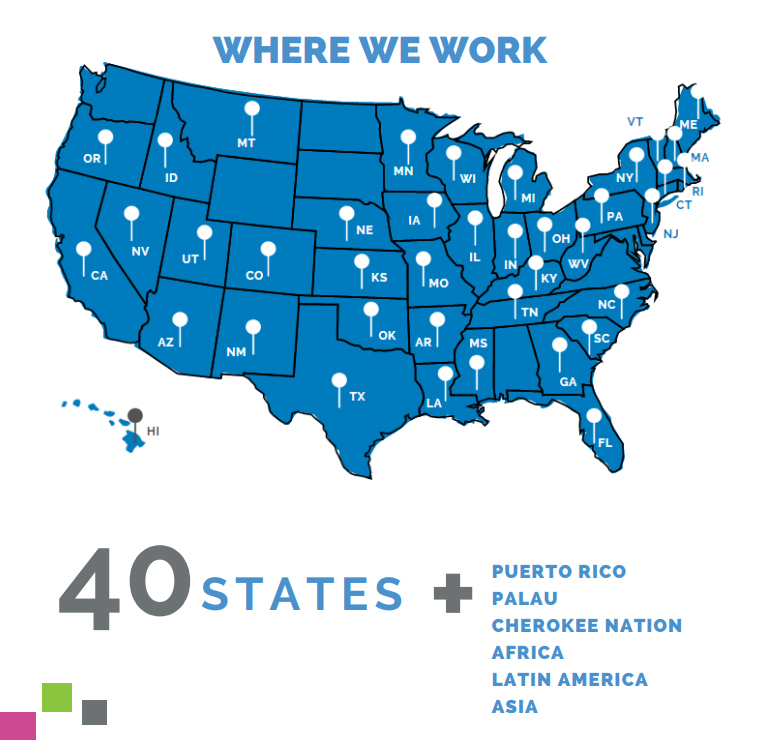
Work With Us
You change the world. We do the rest. Explore fiscal sponsorship at PHI.
Support Us
Together, we can accelerate our response to public health’s most critical issues.
Find Employment
Begin your career at the Public Health Institute.








